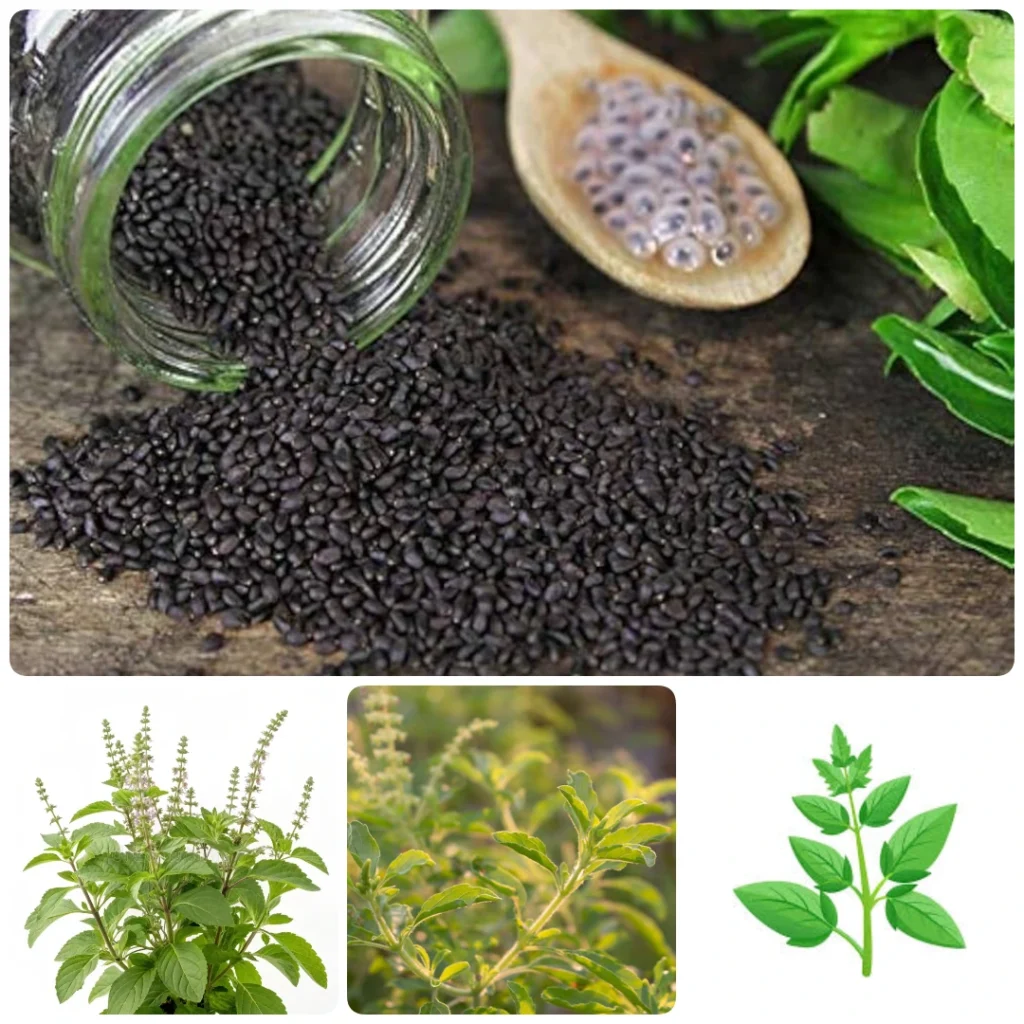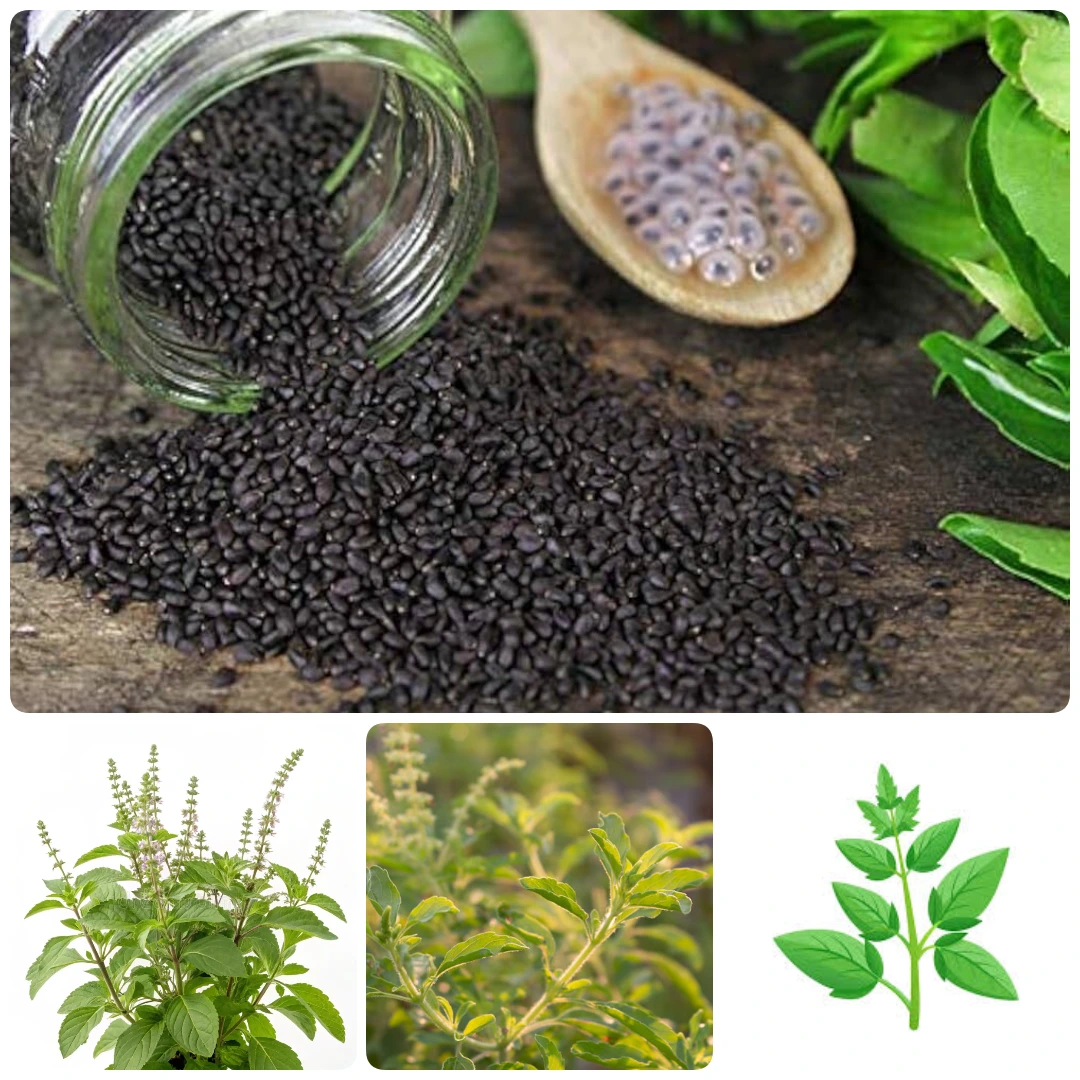
Tulsi herb: A Complete Guide to Its Uses in Ayurveda
Introduction
Tulsi, Basil is scientifically known as Ocimum basilicum and a popular culinary herb a member of mint family Lamiaceae. It’s known for its fragrant leaves and is widely used in various cuisines worldwide. Basil is a relatively easy plant to grow, preferring full sun and well-drained soil.
Key Properties of Tulsi(According to Ayurveda)
- Rasa (Taste): Pungent (Katu) and Bitter (Tikta).
- Guna (Qualities): Light (Laghu), Dry (Rooksha), and Piercing (Teekshna).
- Vipaka (Post-digestive taste): Pungent.
- Veerya (Potency): Hot (Ushna).
- Effect on Doshas: Balances Vata and Kapha, and may increase Pitta in excess.
Different name in some other language:-
Assamese : Tulsi
Bengali : Tulsi
English : Holy Basil
Gujrati : Tulsi, Tulsi
Hindi : Tulsi
Kannada : Tulsi, Shree Tulasi, Vishnu Tulsi
Malayalam : Tulsi, Tulasa
Marathi : Tulsi
Punjabi : Tulsi
Tamil : Tulsi, Thulasi, Thiru Theezai
Telugu : Tulsi
Urdu : Raihan, Tulsi
Key Benefits of Tulsi in Ayurveda
- Boosts Immunity
Tulsi is rich in antioxidants and essential oils that enhance the body’s natural defense mechanism, helping fight infections, colds, and flu. - Reduces Stress and Anxiety
Considered an adaptogen, Tulsi helps balance cortisol levels and reduce mental stress. It calms the nervous system and supports emotional well-being. - Supports Respiratory Health
Tulsi has anti-inflammatory and antimicrobial properties that make it effective against respiratory issues like asthma, bronchitis, and congestion. - Promotes Heart Health
Tulsi helps reduce blood cholesterol and blood pressure, supporting overall cardiovascular health. - Regulates Blood Sugar Levels
It helps stabilize blood glucose and improves insulin sensitivity, making it beneficial for people with diabetes. - Improves Digestion
Tulsi enhances digestive fire (Agni), aids in relieving bloating, indigestion, and gas, and promotes overall gut health. - Antibacterial & Antiviral
Its natural antibiotic properties help in preventing bacterial, viral, and fungal infections. - Good for Skin and Hair
Tulsi purifies the blood, helping to clear acne and skin disorders. Its antimicrobial nature also supports a healthy scalp and hair growth. - Anti-inflammatory & Pain Relief
Tulsi’s compounds work as natural pain relievers, helping with arthritis, headaches, and inflammation-related conditions.
How to use Tulsi as per Ayurveda
- Useful in Intermittent fever (Vishama jwara): Admnistration of 10 ml Krishna tulsi leaf juice mixed with 2 gm Maricha (Pepper) powder thrice a day is beneficial.
- Useful in Cough: Consuming 10ml of tulsi leaves juice with honey, twice or thrice a day is useful in cough and cold.
- Useful in Itching rashes (Skin Allergy): External application of Tulsi leaf paste over the affected skin is
useful. - Useful in Headache: Installation of the 2 drops of tulsi fresh leaves juice in both nostrils on empty stomach
Precaution

Learn and enjoy about new stories for child please click on the kids video page




Post Comment